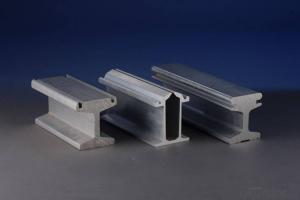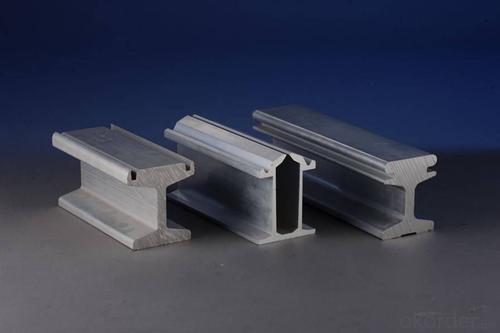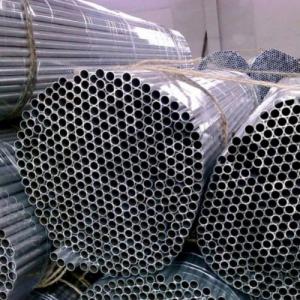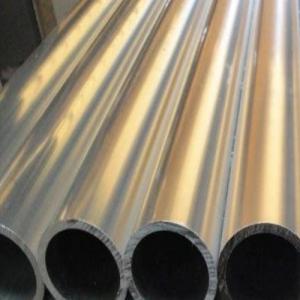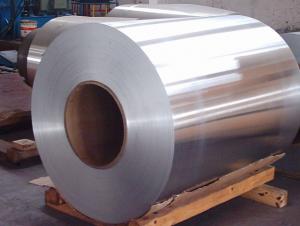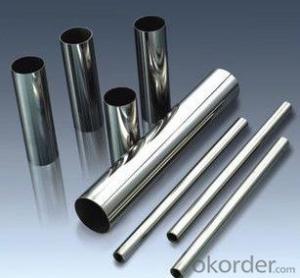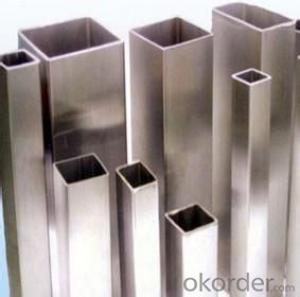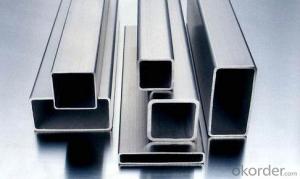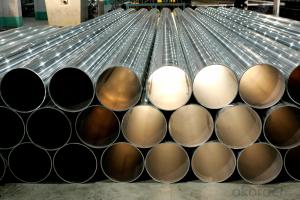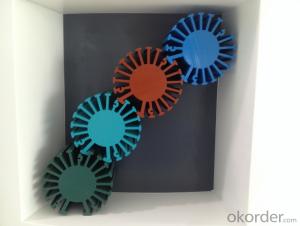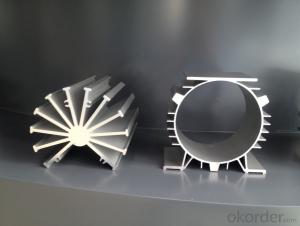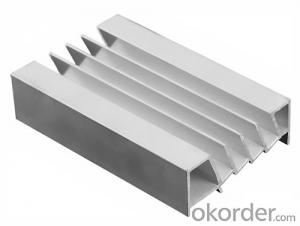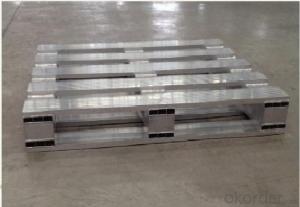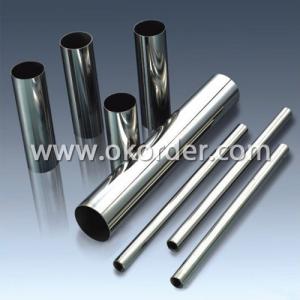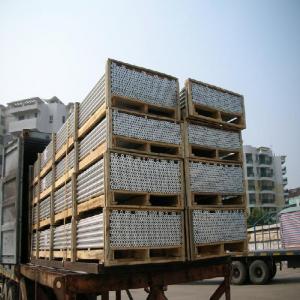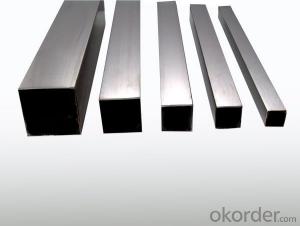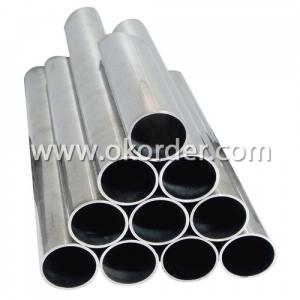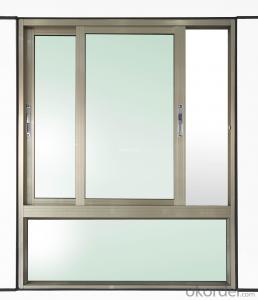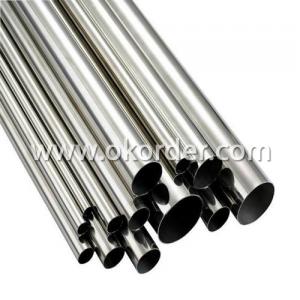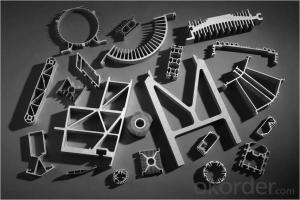Aluminum Conductor Rail Aluminum Pipes
OKorder Service Pledge
OKorder Financial Service
You Might Also Like
We are the largest aluminum profilemanufacture in
Material | Alloy Aluminum 6063,6061,6005,6082 or customer nominated |
Temper | T3, T4, T5, T6 and other |
Surface | Anodize, electrophoresis, powder coating, PVDF coating, etc. |
Colour | Any colour based on Standard Germany RAL Mark |
Length | Not more than 16 meters |
Good Package | Inner plastic film /outside carton/wooden pallets |
Payment Method | T/T, L/C, etc |
Delivery Time | Normally 2-4 weeks, Delivery time can be consulted. |
Press Machine | 500-12500 tons all together 93 press lines. |
Fabrication | 1. Furniture 2. Drilling; 3. Bending; 4. Cutting; 5. etc. |
Certificate | ISO/TS 16949,DNV,IRIS,CCS,AFA,etc. |
Dies | 1. Using our dies, no fee; |
2. Using customer drawing, opening dies, usually about 5~50 tons then the dies cost can be refunded. | |
3. Die cost is negotiable base on the order quantity | |
Capability | Annual output 800,000 tons |
- Q: The air conditioner is broken in the middle of the aluminum tube. How can I weld it?
- There are two kinds of welding methods for aluminum pipe.Method: gas, liquefied gas welding gun with WE-Q303 low temperature aluminum wire.Method two: AC argon arc welding, argon arc welding with aluminum argon arc welding machine.
- Q: What is the lifespan of aluminum pipes?
- The lifespan of aluminum pipes can vary depending on various factors such as the quality of the pipes, the environment in which they are installed, and how well they are maintained. However, under normal conditions, aluminum pipes can last for several decades.
- Q: Are aluminum pipes suitable for HVAC systems?
- Yes, aluminum pipes are suitable for HVAC systems. They are lightweight, corrosion-resistant, and have excellent thermal conductivity, making them ideal for carrying both liquids and gases in HVAC applications. Additionally, aluminum pipes are easy to install, maintain, and have a long lifespan, making them a reliable choice for HVAC systems.
- Q: Can aluminum pipes be used for underground cable conduits?
- Yes, aluminum pipes can be used for underground cable conduits. Aluminum is a lightweight, durable, and corrosion-resistant material, making it suitable for underground applications. It also offers cost-effective solutions and can withstand various environmental conditions.
- Q: What is an aluminum pipe?
- Made primarily from aluminum, which is a lightweight and corrosion-resistant metal, an aluminum pipe is a cylindrical hollow tube. It has advantageous properties that make it commonly used in various industries and applications. The durability, high strength-to-weight ratio, and excellent conductivity of aluminum pipes are well-known. They are frequently employed in plumbing systems, HVAC systems, irrigation, and transportation of fluids or gases. Moreover, aluminum pipes are extensively used in structural applications like scaffolding, handrails, and support structures, taking advantage of their lightweight nature. In summary, aluminum pipes are versatile, reliable, and widely utilized across numerous industries.
- Q: What are the typical pressure ratings for aluminum pipes for HVAC systems?
- The typical pressure ratings for aluminum pipes used in HVAC systems can vary depending on the specific application and industry standards. However, aluminum pipes commonly have pressure ratings ranging from 150 psi (pounds per square inch) to 300 psi, ensuring they can withstand the pressure demands of HVAC systems while maintaining structural integrity.
- Q: Can aluminum pipes be used for solar panel installations?
- Yes, aluminum pipes can be used for solar panel installations. Aluminum is a lightweight and durable material that is resistant to corrosion, making it suitable for outdoor applications like solar panel installations. Additionally, aluminum pipes are easy to work with and can be easily customized to meet the specific requirements of solar panel mounting systems.
- Q: The difference between aluminium pipe and galvanized steel pipe
- Hardness, then the aluminum pipe is better than galvanized steel pipe.
- Q: Which is better, titanium alloy or high pressure aluminium tube?
- we must consider the actual use, can use aluminum alloy place, aluminum alloy than titanium alloy is good, otherwise, titanium alloy is best.
- Q: Are aluminum pipes suitable for nuclear power plants?
- Aluminum pipes are unsuitable for nuclear power plants as they have certain limitations. Despite being lightweight and corrosion-resistant, aluminum has drawbacks that make it unfit for use in this context. The primary concern with aluminum pipes in nuclear power plants is their relatively low melting point. Operating temperatures in nuclear power plants far exceed aluminum's melting point of approximately 660 degrees Celsius. This means that the pipes can deform or fail when exposed to the high temperatures, compromising the system's integrity. Another major issue is aluminum's low neutron absorption cross-section. Neutrons play a crucial role in nuclear reactions, and materials used in nuclear power plants must be capable of absorbing these neutrons to control the reaction and prevent a runaway chain reaction. Unfortunately, aluminum has a relatively low neutron absorption rate, making it unsuitable for critical areas where neutron absorption is necessary. Moreover, aluminum is prone to corrosion in specific conditions, particularly in the presence of water or moisture. Given that nuclear power plants use water as a coolant and for other purposes, the corrosive environment can lead to the deterioration of aluminum pipes over time. This corrosion compromises the pipes' structural integrity, resulting in leaks or failures with potentially severe consequences in a nuclear power plant. Considering these factors, materials like stainless steel or other high-performance alloys are preferred over aluminum in nuclear power plants. Stainless steel, for instance, exhibits higher melting points, better neutron absorption properties, and superior resistance to corrosion. In summary, the use of aluminum pipes is not suitable in nuclear power plants due to their low melting point, inadequate neutron absorption properties, and susceptibility to corrosion. Instead, materials such as stainless steel are preferred for their higher temperature resistance, superior neutron absorption rates, and better corrosion resistance. These alternatives ensure the safety and reliability of nuclear power plant operations.
Send your message to us
Aluminum Conductor Rail Aluminum Pipes
OKorder Service Pledge
OKorder Financial Service
Similar products
Hot products
Hot Searches
Related keywords
